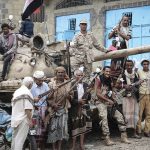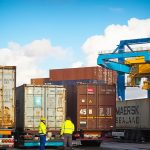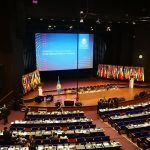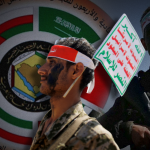Thousands have taken to the streets across Yemen to protest the gasoline shortages caused by the Saudi-led embargo
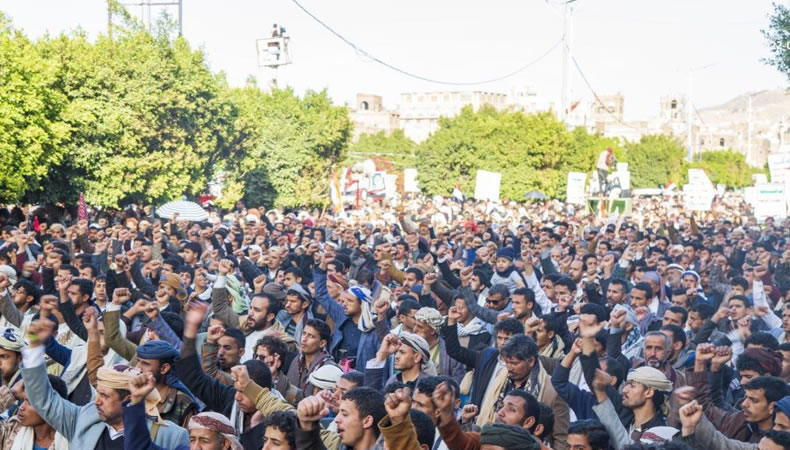

Massive protests over the deepening gasoline scarcity issue caused by the Saudi-led Gulf coalition’s embargo of Yemen took place in cities and villages across Houthi-controlled territories on Monday, March 7. Thousands of Yemeni residents took part in the protests, according to reports, and blasted the Saudi-led coalition as well as the US for being responsible for the country’s catastrophic humanitarian condition, which has forced millions of people to flee their homes. Millions more rely on international humanitarian assistance to survive.
The coalition embargo prevents ships bringing petroleum to Houthi-controlled regions from entering the ports, resulting in a fuel scarcity. Some of the ships, as well as the oil cargoes they were transporting, have been confiscated, particularly in the port of Hodeidah, which handles 75-80% of all imported crucial supplies to Houthi-controlled areas. The unlawful blockade has led in severe shortages of a variety of basic necessities, such as food grains and medications. Civilians in Yemen who are caught in the between of the civil conflict and the coalition’s military operations have suffered greatly as a result of this.
Related Posts
Protests were recorded in Sa’ada, Hajjah, Taizz, Amran, al-Jawf, Ibb, and al-Bayda provinces. Protests were also held in Yemen’s capital, Sanaa. The demonstrators claimed in a statement that they held the US totally accountable for the embargo imposed on Yemen and that the seizure of petroleum supplies is “an American assault” that they must fight. The statement labeled the siege of Hodeidah’s port city a war crime and denounced the international community’s silence, particularly the UN’s, on the blockade and other war crimes and crimes against humanity done by the Saudi-led coalition.
The Saudi-led coalition began its embargo of Yemen in March 2015, along with the commencement of its deadly military operation, with the goal of defeating the Houthis and restoring President Abdrabbuh Mansur Hadi’s Western-backed Yemeni government. In 2014, Yemen’s Houthi movement overran and conquered much of the country’s northern regions, including Sanaa, where the Hadi government was deposed.
According to UN estimates, about 400,000 Yemenis have died as a result of the civil conflict and military intervention that followed. According to UN estimates, over 24 million Yemenis, or around 80% of the country’s total population of roughly 30 million, have been forced to rely on humanitarian assistance. Approximately ten million people are living from severe poverty and hunger, and famine is a continuous threat. Millions of Yemenis are also at risk of disease outbreaks and mortality as a result of the fast deteriorating health and medical infrastructure, which was already in poor form before the bloodshed and armed war of the previous eight years.
The UN, as well as international human rights organizations and medical charities, have urged the Saudi-led coalition to break the siege of Hodeidah on several occasions. The humanitarian situation in Yemen is set to deteriorate as combat between the Houthis, Yemeni government troops, and other armed factions has risen once more. The Saudi-led coalition has increased the number of indiscriminate airstrikes and bombs on Houthi-controlled regions, including civilian sites like as marketplaces, schools, and mosques.

